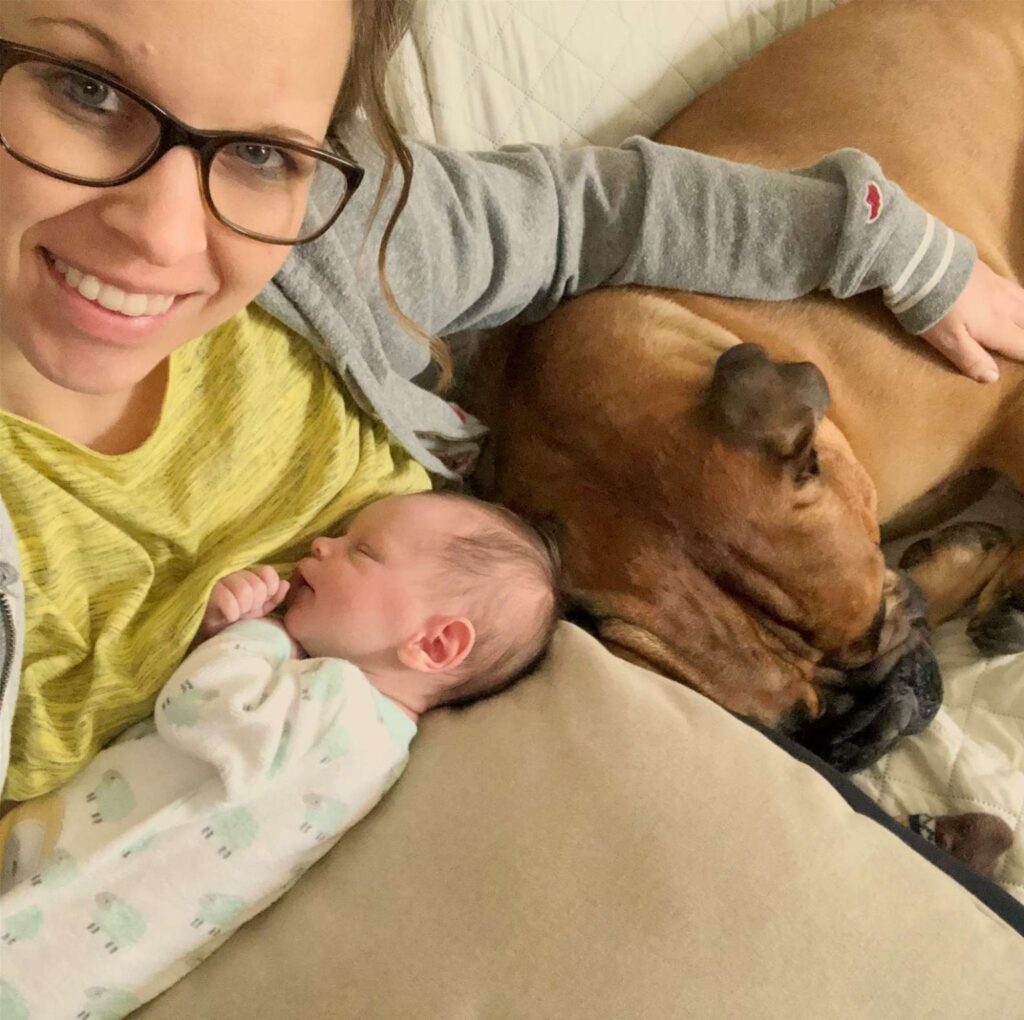
Dogs have long been celebrated for their unwavering loyalty, boundless affection, and intuitive understanding of human emotions. These remarkable traits become even more pronounced during the transformative journey from pregnancy to parenthood. As families prepare to welcome a new baby, the family dog often plays a crucial, supportive role, seamlessly transitioning from a devoted companion to a protective guardian. This narrative explores the heartwarming and sometimes surprising behaviors exhibited by dogs during this significant period, highlighting their unique ability to enrich family life and provide unparalleled emotional support.
Intuitive Understanding of Pregnancy:
- Dogs have an incredible ability to sense changes in their owner’s body and behavior. This heightened awareness often leads to a noticeable shift in the dog’s behavior, including increased affection and protectiveness towards the pregnant owner.
- Many dogs exhibit an instinctual understanding of pregnancy, providing comfort and companionship as their owners navigate physical and emotional changes.
Protective Instincts:
- As the pregnancy progresses, dogs often become more vigilant and protective. This behavior can manifest in various ways, such as staying close to the pregnant owner, following them around the house, or even becoming more cautious around strangers.
- This protective instinct is a testament to the deep bond between dogs and their owners, showcasing their role as loyal guardians.
Emotional Support:
- The emotional support provided by dogs during pregnancy is invaluable. Their presence can help alleviate stress, anxiety, and loneliness, offering a constant source of comfort and companionship.
- Dogs have a unique ability to sense when their owners are feeling overwhelmed or distressed, often responding with affectionate gestures and calming behaviors.
Preparation for the Baby’s Arrival:
- As the due date approaches, dogs can be gradually introduced to the changes that a new baby will bring. This can include familiarizing them with baby sounds, scents, and new routines to ensure a smooth transition.
- Proper preparation helps dogs adapt to the new family dynamic, reducing anxiety and ensuring they feel included in the process.
Adapting to Parenthood:
- After the baby arrives, dogs often display remarkable adaptability. They can quickly learn to coexist with the new family member, often showing a gentle and protective attitude towards the infant.
- Dogs can become an integral part of the baby’s life, providing companionship and a sense of security. Their interactions can be incredibly heartwarming, showcasing the unique bond between dogs and children.
Strengthening Family Bonds:
- The presence of a dog during the transition to parenthood can strengthen family bonds. Dogs often facilitate interactions and shared experiences, fostering a sense of unity and togetherness.
- The shared responsibility of caring for both the baby and the dog can enhance communication and cooperation among family members.
Ongoing Relationship:
- The relationship between the dog and the child evolves over time, growing stronger as the child becomes more aware and interactive. This ongoing bond can lead to lifelong friendships and cherished memories.
- Dogs often play a pivotal role in a child’s development, teaching lessons of empathy, responsibility, and unconditional love.
The journey from pregnancy to parenthood is a profound experience, made even more special by the devoted presence of a family dog. Their intuitive understanding, protective instincts, and unwavering emotional support enrich the lives of expectant parents and their new arrivals, creating a nurturing environment filled with love and companionship. This narrative celebrates the extraordinary bond between dogs and their human families, highlighting the unique and irreplaceable role they play during this transformative period.
